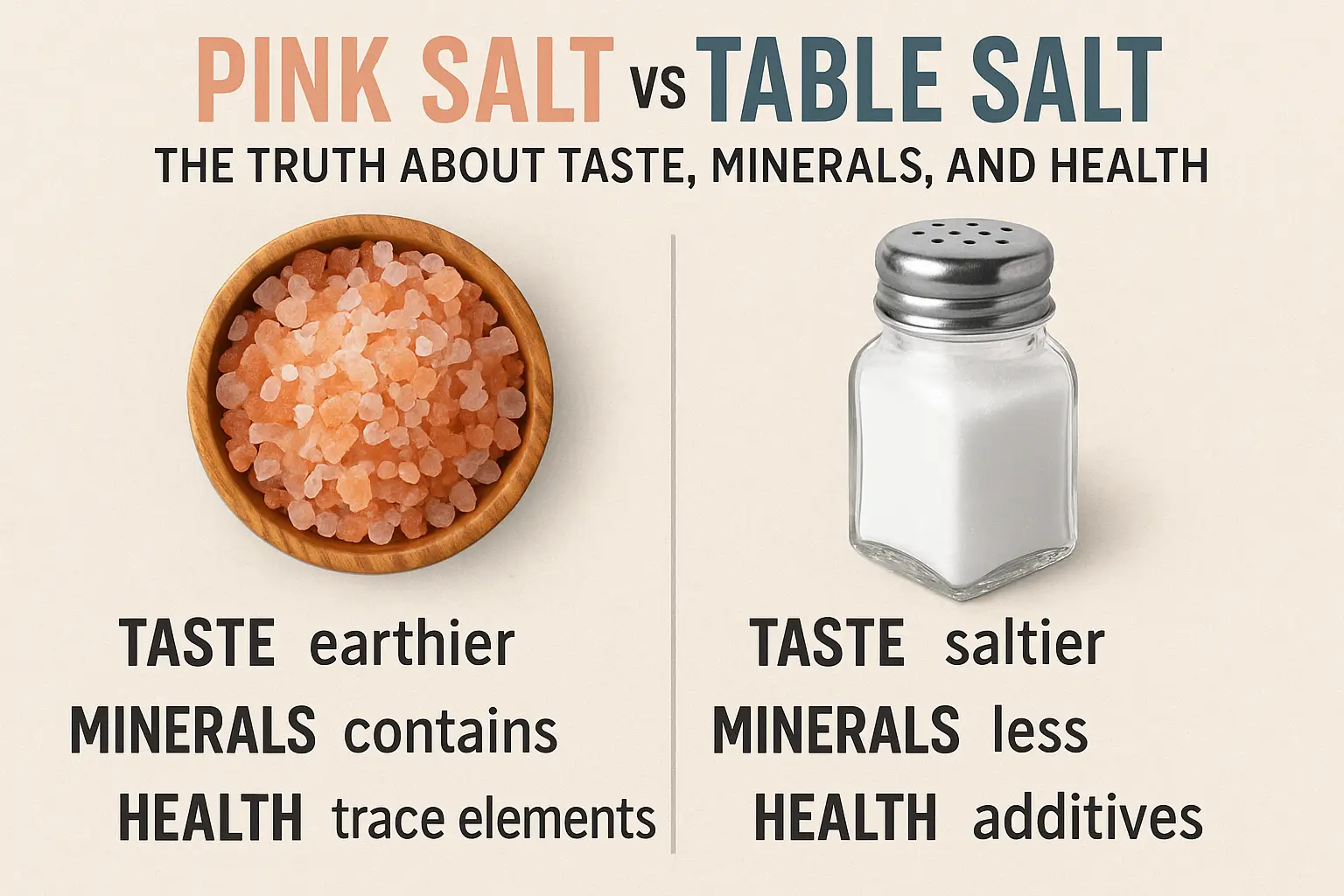In a world where aches and pains seem to pop up unannounced, Non Steroidal Anti Inflammatory Drugs NSAIDs have become a go-to solution for many seeking quick relief. These medications, known for their effectiveness in reducing inflammation and alleviating pain, are often found in our medicine cabinets, ready to combat everything from headaches to arthritis. However, while NSAIDs offer these benefits, they are not without their drawbacks. The potential side effects and long-term health implications of frequent use can be concerning for those who rely on them regularly.
But what if there was a way to manage pain and inflammation without always reaching for the pill bottle? Enter the world of natural diet alternatives and lifestyle changes. By integrating an anti-inflammatory diet into your daily routine, you could potentially reduce your reliance on NSAIDs and their associated risks.
- What are The Benefits of NSAIDs?
- What are The Risks of NSAIDs?
- Who Should Avoid Non Steroidal Anti Inflammatory Drugs NSAIDs?
- What are Some Common NSAID Side Effects?
- Mechanism of Action of NSAIDs
- Enhancing Healthcare Team Outcomes
- Alternatives to NSAIDs
- When NSAIDS are no Longer Effective What Medication is usually Prescribed?
- Anti Inflammatory Nonsteroidal Drugs List
- List of NSAIDs from Strongest to Weakest
- Best Non Steroidal Anti Inflammatory Drugs
- What is the Difference between NSAID and Analgesic?
- Effective Dietary Strategies that Could Serve as a Natural, Holistic Approach to Managing Inflammation
- How to Reduce Inflammation Naturally
This blog post will delve into the primary uses of Non Steroidal Anti Inflammatory Drugs NSAIDs, explore their benefits, and introduce you to effective dietary strategies that could serve as a natural, holistic approach to managing inflammation. Whether you’re a long-time user of NSAIDs or simply exploring your options, this journey into alternative solutions promises valuable insights for a healthier lifestyle.
What are The Benefits of NSAIDs?
NSAIDs offer a multitude of benefits. Firstly, they are widely known for their potent anti-inflammatory properties, making them effective in reducing inflammation, pain, and swelling. These drugs are commonly used to alleviate symptoms of conditions like arthritis, tendonitis, and menstrual cramps.
Another significant benefit of Non Steroidal Anti Inflammatory Drugs NSAIDs is their ability to lower fever by inhibiting the production of prostaglandins, which are responsible for causing fever. This makes them a popular choice for managing fevers in various illnesses.
NSAIDs are also favored for their analgesic properties, providing relief from mild to moderate pain such as headaches, muscle aches, and dental pain. Their quick onset of action makes them a preferred choice for acute pain relief.
Moreover, NSAIDs are available over the counter in many formulations, offering convenience and accessibility to individuals seeking relief from pain and inflammation without a prescription. However, it’s essential to use them cautiously and follow recommended dosages to avoid potential side effects.
What are The Risks of NSAIDs?
NSAIDs, short for nonsteroidal anti-inflammatory drugs, are commonly used to relieve pain and inflammation. However, despite their effectiveness, there are risks associated with their usage. One of the primary risks of NSAIDs is gastrointestinal issues. Prolonged use of these drugs can lead to stomach ulcers, bleeding, and other digestive complications. It’s important to take NSAIDs FDA drugs with food or medications like proton pump inhibitors to reduce these risks.
Another significant risk of Non Steroidal Anti Inflammatory Drugs NSAIDs is cardiovascular problems. Studies have shown that these adverse effects of nsaids drugs can increase the risk of heart attacks and strokes, especially in individuals with pre-existing heart conditions. Patients with cardiovascular issues should consult their healthcare providers before using NSAIDs.
Additionally, NSAIDs can affect kidney function, leading to issues such as fluid retention and reduced kidney function. People with kidney problems should use these drugs with caution and under medical supervision.
In conclusion, while NSAIDs are effective in managing pain and inflammation, it’s crucial to be aware of the potential risks associated with their use for drug safety, especially concerning gastrointestinal, cardiovascular, and renal health.
Who Should Avoid Non Steroidal Anti Inflammatory Drugs NSAIDs?
Individuals with a history of stomach ulcers, gastrointestinal bleeding, or kidney problems should avoid non-steroidal anti-inflammatory drugs (NSAIDs). These medications can irritate the stomach lining, leading to ulcers and bleeding, especially when taken for an extended period.
Patients with kidney issues should also steer clear of NSAIDs as these drugs can impair kidney function and cause further damage. Those with a history of allergic reactions to NSAIDs should consult their healthcare provider before taking these medications.
Pregnant women in their third trimester should avoid NSAIDs as they can interfere with the baby’s development and may prolong labor. Furthermore, individuals with asthma may experience exacerbation of symptoms when using NSAIDs.
It is crucial to discuss any existing medical conditions or concerns with a healthcare provider before starting NSAID therapy to prevent adverse effects and ensure the safest treatment option.
What are Some Common NSAID Side Effects?
NSAIDs, short for nonsteroidal anti inflammatory drugs, are commonly used to relieve pain and reduce inflammation in conditions like arthritis and muscle strains. Despite their effectiveness, NSAIDs can have several side effects that users should be aware of.
One of the most common side effects of Non Steroidal Anti Inflammatory Drugs NSAIDs is gastrointestinal issues. These drugs can irritate the stomach lining, leading to symptoms like indigestion, stomach ulcers, and even gastrointestinal bleeding. It is recommended to take NSAIDs with food to minimize this risk.
Another common side effect is kidney damage. Prolonged use of NSAIDs can impair kidney function, especially in individuals with preexisting kidney issues. It is crucial to stay hydrated and monitor kidney function regularly while taking NSAIDs.
Additionally, Non Steroidal Anti Inflammatory Drugs NSAIDs can increase the risk of cardiovascular events such as heart attacks and strokes, particularly in individuals with a history of heart disease. Patients with heart conditions should consult their healthcare provider before using NSAIDs.
In conclusion, while NSAIDs are effective in managing pain and inflammation, users should be mindful of the potential side effects and take necessary precautions to minimize risks.
Mechanism of Action of NSAIDs
The mechanism of action of NSAIDs involves inhibiting the enzyme cyclooxygenase (COX), which plays a crucial role in the production of prostaglandins. Prostaglandins are responsible for mediating inflammation, pain, and fever in the body. By blocking COX, NSAIDs reduce the synthesis of prostaglandins, thus alleviating these symptoms.

There are two main types of COX enzymes: COX-1 and COX-2. Traditional NSAIDs like aspirin and ibuprofen inhibit both COX-1 and COX-2, leading to potential side effects such as gastrointestinal ulcers and bleeding. Selective COX-2 inhibitors, on the other hand, target only the COX-2 enzyme, minimizing these adverse effects.
NSAIDs are commonly used to manage pain, inflammation, and fever in conditions like arthritis, menstrual cramps, and minor injuries. However, it’s essential to use them cautiously due to their potential side effects on the stomach, kidneys, and cardiovascular system. Understanding the mechanism of action of NSAIDs is crucial for their safe and effective use in clinical practice.
Enhancing Healthcare Team Outcomes
Enhancing healthcare team outcomes involves optimizing the use of NSAIDs in patient care. Understanding the mechanisms of action and potential side effects of NSAIDs is crucial for healthcare professionals to make informed treatment decisions. Collaboration among healthcare team members, including physicians, pharmacists, and nurses, ensures comprehensive patient care when prescribing NSAIDs.
NSAIDs are commonly used to manage pain, inflammation, and fever. However, healthcare teams must monitor patients for gastrointestinal complications, cardiovascular risks, and renal issues associated with long-term NSAID use. Patient education on NSAID usage and adherence to prescribed dosages are essential components of achieving positive healthcare outcomes.
By implementing interdisciplinary approaches, healthcare teams can enhance patient safety and outcomes when utilizing NSAIDs. Regular communication, monitoring, and individualized care plans tailored to each patient’s needs contribute to the overall success of NSAID therapy within the healthcare setting.
Alternatives to NSAIDs
When it comes to managing pain and inflammation, NSAIDs are commonly used. However, there are alternatives to NSAIDs that can be equally effective in providing relief.
One option is to explore natural remedies such as turmeric, ginger, or bromelain which have anti-inflammatory properties without the side effects of NSAIDs. These remedies can be ingested as supplements or incorporated into daily meals for added benefits.
Physical therapy is another alternative to NSAIDs. It focuses on strengthening muscles, improving flexibility, and reducing pain through targeted exercises and stretches. This approach not only treats the symptoms but also addresses the root cause of the pain.
Acupuncture and massage therapy are additional options for pain management. Acupuncture targets specific pressure points to alleviate pain, while massage therapy helps relax muscles, improve circulation, and reduce inflammation.
By considering these alternatives to NSAIDs, individuals can choose the most suitable method for managing pain and inflammation without relying solely on medication.
When NSAIDS are no Longer Effective What Medication is usually Prescribed?
When NSAIDs are no longer effective in managing pain and inflammation, healthcare providers typically prescribe other medications such as corticosteroids or disease-modifying antirheumatic drugs (DMARDs). Corticosteroids like prednisone are potent anti-inflammatory drugs that can help in controlling symptoms quickly, but they are usually used for short periods due to potential side effects with long-term use.
Additionally, DMARDs play a crucial role in treating chronic inflammatory conditions like rheumatoid arthritis by targeting the underlying disease process rather than just the symptoms. Medications such as methotrexate, sulfasalazine, and hydroxychloroquine are common DMARDs prescribed to slow down joint damage and improve quality of life for patients.
In some cases, biologic response modifiers may also be recommended to individuals who do not respond to traditional treatments. These drugs target specific components of the immune system involved in inflammatory responses, offering a more targeted approach to managing conditions like psoriatic arthritis or ankylosing spondylitis.
Anti Inflammatory Nonsteroidal Drugs List
When it comes to managing inflammation, Nonsteroidal Anti Inflammatory Drugs (NSAIDs) are commonly prescribed. NSAIDs work by reducing the production of prostaglandins, which are chemicals in the body that promote inflammation, pain, and fever.
Here is a list of some popular NSAIDs:
1. Ibuprofen: Widely used for relieving pain and reducing inflammation, ibuprofen is available over the counter.
2. Naproxen: Known for its long-lasting effects, naproxen is often prescribed for conditions like arthritis and menstrual cramps.
3. Aspirin: Besides its pain-relieving properties, aspirin is also used as a blood thinner to prevent heart attacks and strokes.
4. Celecoxib: This NSAID is specifically designed to target inflammation without affecting the stomach lining, making it suitable for long-term use.
5. Meloxicam: Often prescribed for osteoarthritis and rheumatoid arthritis, meloxicam helps reduce pain and swelling in joints.
Remember to always consult a healthcare professional before starting any medication, including NSAIDs.
List of NSAIDs from Strongest to Weakest
When it comes to anti inflammatory medications list (NSAIDs), knowing their potency is crucial for proper pain management. Here’s a list of NSAIDs from strongest to weakest that can guide you in choosing the right medication:
1. Diclofenac: Known for its strong anti-inflammatory properties, diclofenac is commonly prescribed for conditions like arthritis.
2. Indomethacin: This NSAID is potent in reducing pain and inflammation, often used for gout and certain types of arthritis.
3. Naproxen: With a long-lasting effect, naproxen is effective in treating various inflammatory conditions.
4. Ibuprofen: Widely available over the counter, ibuprofen is milder compared to other NSAIDs but still effective for mild to moderate pain relief.
5. Aspirin: While also belonging to the NSAID category, aspirin is considered the weakest in terms of its anti-inflammatory properties.
Understanding the strength of these NSAIDs can help you make informed decisions with your healthcare provider on the most suitable medication for your pain management needs.
Best Non Steroidal Anti Inflammatory Drugs
When it comes to managing pain and inflammation, NSAIDs pills are commonly prescribed. These medications, such as ibuprofen and naproxen, work by reducing inflammation and providing relief from discomfort. However, it’s essential to consider the safest options when choosing an anti-inflammatory medication.
While NSAIDs can be effective, they also come with potential side effects, including stomach ulcers and kidney problems. Therefore, it’s crucial to weigh the benefits against the risks when using these drugs. Additionally, exploring natural alternatives like the Anti-Inflammatory Diet cookbook can provide a holistic approach to managing inflammation without the potential side effects of NSAIDs.
For those looking for the best non-steroidal anti inflammatory medications, considering both effectiveness and safety is key. Topical NSAIDs can be a great option for localized pain relief with lower systemic absorption, reducing the risk of side effects compared to oral NSAIDs. When it comes to choosing the best anti-inflammatory medication, consulting with a healthcare provider to tailor the treatment to individual needs is crucial.
What is the Difference between NSAID and Analgesic?
NSAIDs and analgesics are often confused due to their similar pain-relieving effects but have distinct differences. NSAIDs, short for non-steroidal antiinflammatory pills, not only alleviate pain but also reduce inflammation by blocking the enzyme responsible for producing prostaglandins, which are chemicals that trigger pain and inflammation. On the other hand, analgesics are painkillers that work by blocking pain signals to the brain without targeting inflammation.
While NSAIDs like aspirin, ibuprofen, and naproxen are effective in treating conditions like arthritis and menstrual cramps by reducing inflammation, analgesics such as acetaminophen are better suited for relieving mild to moderate pain from headaches, toothaches, or muscle aches without affecting inflammation. It’s essential to understand the difference between NSAIDs and analgesics to choose the most appropriate medication based on the type and severity of pain or inflammation being experienced. Consulting a healthcare professional for personalized advice is recommended before starting any medication regimen.
Effective Dietary Strategies that Could Serve as a Natural, Holistic Approach to Managing Inflammation
When it comes to managing inflammation, exploring effective dietary strategies can offer a natural and holistic approach. While (NSAIDs) are commonly used, incorporating dietary changes can complement or even replace traditional medication for some individuals.

Focusing on an anti-inflammatory diet rich in fruits, vegetables, whole grains, and healthy fats like omega-3 fatty acids can help reduce inflammation in the body. Foods high in antioxidants, such as berries, nuts, and leafy greens, can also play a crucial role in combating inflammation.
Moreover, avoiding processed foods, sugary beverages, and excessive alcohol can help prevent inflammation from worsening. Opting for natural anti-inflammatory ingredients like turmeric, ginger, and green tea can further enhance the body’s ability to fight inflammation.
By adopting these dietary strategies, individuals can proactively manage inflammation and promote overall health and well-being without solely relying on NSAIDs. Remember, food can be a powerful tool in combating inflammation naturally.
How to Reduce Inflammation Naturally
There are several natural ways to reduce inflammation in the body. Here are some tips to help reduce inflammation naturally:
1. Eat an Anti-inflammatory Diet:
– Include plenty of fruits and vegetables in your diet, especially those rich in antioxidants like berries, dark leafy greens, and tomatoes.
– Incorporate omega-3 fatty acids from sources like fatty fish, flaxseeds, chia seeds, and walnuts.
– Limit processed foods, sugary drinks, and foods high in trans fats and saturated fats.
2. Manage Stress:
– Practice relaxation techniques such as deep breathing, meditation, yoga, or tai chi to help reduce stress levels.
– Get enough sleep and aim for at least 7-9 hours of quality sleep each night.
3. Exercise Regularly:
– Engage in regular physical activity, such as walking, swimming, or cycling, to help reduce inflammation and improve overall health.
– Incorporate strength training exercises to build muscle and support joint health.
4. Stay Hydrated:
– Drink plenty of water throughout the day to help flush out toxins and reduce inflammation in the body.
5. Use Herbs and Spices:
– Incorporate anti-inflammatory herbs and spices like turmeric, ginger, garlic, and cinnamon into your meals.
6. Avoid Toxins:
– Minimize exposure to environmental toxins, such as pollutants, chemicals, and pesticides, which can contribute to inflammation.
7. Maintain a Healthy Weight:
– Aim to achieve and maintain a healthy weight through a balanced diet and regular exercise to reduce inflammation and lower the risk of chronic diseases.
It’s important to note that while these natural remedies can help reduce inflammation, it’s always best to consult with a healthcare provider before making any significant changes to your diet or lifestyle, especially if you have any underlying health conditions.
In addition to incorporating anti-inflammatory herbs and spices into your diet, another effective way to reduce inflammation naturally is by prioritizing quality sleep. Lack of sufficient sleep can lead to increased inflammation in the body, affecting overall health. Ensure you get at least 7-8 hours of restful sleep each night to allow your body to repair and regenerate, helping to combat inflammation effectively.
Moreover, practicing stress-reducing techniques like meditation, yoga, or deep breathing exercises can also play a significant role in lowering inflammation levels. Chronic stress can trigger inflammation, so it’s vital to manage stress levels to maintain a healthy balance in your body.
By implementing these lifestyle changes alongside the mentioned natural remedies, you can create a holistic approach to combat inflammation and promote optimal health. Remember, consistency is key in achieving sustainable results.










